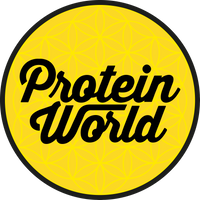
CARBS AREN'T THE ENEMY
The Importance of carbohydrate for muscle development!
A brief intro to carbohydrates
Carbohydrate or ‘carbs’ are the topic of much debate within many areas of nutrition. There are many dietary strategies out there, such as Keto and Atkins that are ‘anti-carbs’ which has caused a movement against the consumption of carbohydrate. But carbohydrate is an important part of anyone’s diet regardless of their training or nutrition goal, and the message should instead be to reduce certain types of carbohydrate in our diets, rather than carbohydrate as a whole. Specifically, you should aim to reduce added simple ‘free’ sugars in our diets but aim to keep a sufficient intake of high fibre starchy carbohydrate.
What is the function of carbohydrate in the body?
Carbohydrate serves multiple purposes in the body, with its main role being the primary source of energy in a healthy, balanced diet. Other important roles that it has relates to fibre content. A high fibre diet promotes good bowel health, reduced cholesterol levels, and reduced risk of various chronic diseases such as type 2 diabetes and bowel cancer.


Sources of carbohydrate
High fibre starchy carbohydrate sources include fruits, vegetables, legumes, pulses, wholegrain bread and whole wheat pasta which should form a large percentage of your carbohydrate intake. We offer a high protein porridge in the form of the Slender Porridge which is packed with fibre and makes for a great source of carbohydrate for breakfast. Whereas foods high in free sugars, such as biscuits, cakes, sweets, high sugar soft drinks and fruit juices should be avoided where possible or only form a small percentage of total carbohydrate intake.
How does carbohydrate support muscle development?
We all know the importance of training for muscle development, but equally important is the diet that goes along with it. In order to build muscle; you need to be performing high intensity exercise, typically resistance training of some variety to provide the stimulus for muscle growth to take place.
Carbohydrate is the fuel for high intensity exercise performance. Without sufficient carbohydrate intake you won’t be able to maximise your workout performance or recovery, particularly if you are training regularly. Your body can only store so much carbohydrate and this will need to be topped up regularly, particularly in periods of high exercise load. Without sufficient carbohydrate you are more likely to feel fatigued before and during exercise and be unable to perform at your best which means that your muscle growth potential will be negatively impacted.
As you can see carbohydrates are in no way the enemy and should certainly not be being avoided. A healthy balance of both macronutrients and micronutrients is the imperative to obtaining a healthy diet and although protein might be the key player in muscle development, carbohydrates are also extremely necessary so don’t fear the second helping of pasta or bread when the body needs it!

RECOMMENDED PRODUCTS

CARBS AREN'T THE ENEMY
The Importance of carbohydrate for muscle development!
A brief intro to carbohydrates
Carbohydrate or ‘carbs’ are the topic of much debate within many areas of nutrition. There are many dietary strategies out there, such as keto and Atkins that are ‘anti-carbs’ which has caused a movement against the consumption of carbohydrate. But carbohydrate is an important part of anyone’s diet regardless of their training or nutrition goal, and the message should instead be to reduce certain types of carbohydrate in our diets, rather than carbohydrate as a whole. Specifically, you should aim to reduce added simple ‘free’ sugars in our diets but aim to keep a sufficient intake of high fibre starchy carbohydrate.
What is the function of carbohydrate in the body?
Carbohydrate serves multiple purposes in the body, with its main role being the primary source of energy in a healthy, balanced diet. Other important roles that it has relates to fibre content. A high fibre diet promotes good bowel health, reduced cholesterol levels, and reduced risk of various chronic diseases such as type 2 diabetes and bowel cancer.

Sources of carbohydrate
High fibre starchy carbohydrate sources include fruits, vegetables, legumes, pulses, wholegrain bread and whole wheat pasta which should form a large percentage of your carbohydrate intake. We offer a high protein porridge in the form of the Slender Porridge which is packed with fibre and makes for a great source of carbohydrate for breakfast. Whereas foods high in free sugars, such as biscuits, cakes, sweets, high sugar soft drinks and fruit juices should be avoided where possible or only form a small percentage of total carbohydrate intake.
How does carbohydrate support muscle development? We all know the importance of training for muscle development, but equally important is the diet that goes along with it. In order to build muscle; you need to be performing high intensity exercise, typically resistance training of some variety to provide the stimulus for muscle growth to take place.

Carbohydrate is the fuel for high intensity exercise performance. Without sufficient carbohydrate intake you won’t be able to maximise your workout performance or recovery, particularly if you are training regularly. Your body can only store so much carbohydrate and this will need to be topped up regularly, particularly in periods of high exercise load. Without sufficient carbohydrate you are more likely to feel fatigued before and during exercise and be unable to perform at your best which means that your muscle growth potential will be negatively impacted.
As you can see carbohydrates are in no way the enemy and should certainly not be being avoided. A healthy balance of both macronutrients and micronutrients is the imperative to obtaining a healthy diet and although protein might be the key player in muscle development, carbohydrates are also extremely necessary so don’t fear the second helping of pasta or bread when the body needs it!
If you have any further questions on this topic or any other nutrition questions, get in touch with our nutritionists at advice@proteinworld.com.
- OTHER STORIES -








